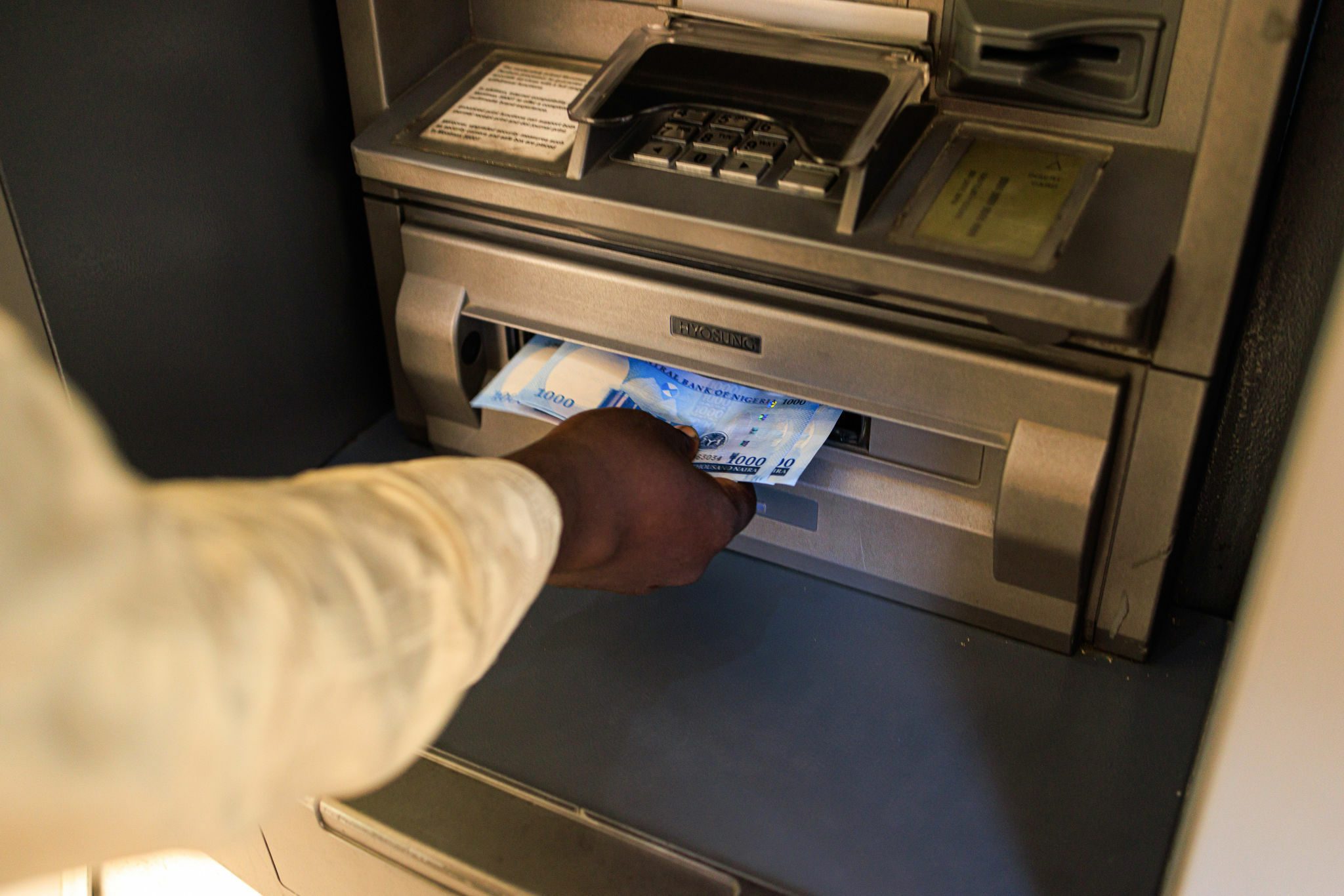In an era where technology has simplified complex tasks, a common inquiry emerges: “Can I send money from South Africa to Nigeria?” The digital age has indeed revolutionized various aspects of our lives, including financial transactions. The process of sending money from South Africa to Nigeria has been significantly streamlined thanks to advancements in technology and the internet.
The Evolution of International Money Transfers
Gone are the days of lengthy forms and prolonged waiting periods for funds to be transferred internationally. Various platforms have emerged, transforming the way funds are sent across borders and ensuring that recipients can receive money within 24 hours. This rapid, hassle-free method is a testament to the innovative strides in the financial sector.
Conducting Transactions with Ease
With just an internet connection and a device such as a smartphone, tablet, laptop, or desktop, individuals can initiate and complete these transactions in an impressively short time. This convenience has opened up a world of possibilities for those looking to send money to Nigeria from South Africa.

Top Solutions for Transferring Money to Nigeria
While numerous platforms facilitate money transfers to Nigeria, certain services stand out for their reliability and user experience. Here are some of the top solutions:
WorldRemit
Known for its speed and reliability, WorldRemit allows senders to transfer up to seven million Naira in one transaction. Funds are typically sent as regular bank transfers to domiciliary accounts in Nigeria. Recipients can receive funds through various channels, including mobile money wallets like Opay, Kudi, and Paga, or through banks such as Access Bank, Fidelity Bank, and Zenith Bank.
WorldRemit is a digital money transfer service that allows people to send money internationally in a fast, secure, and low-cost manner. It’s particularly popular among expatriates and migrant workers who need to send money back to their home countries. Here’s what you need to know about using WorldRemit to send money from South Africa to Nigeria:
How WorldRemit Works:
- Setup: To use WorldRemit, you first need to sign up and create an account. This will involve providing some identification and setting up your payment details.
- Sending Money: Once registered, you can send money by entering the recipient’s details, how much you want to send, and where they will be receiving it. For South Africa to Nigeria transfers, you’ll input the amount in South African Rand (ZAR), and it will be converted to the Nigerian Naira (NGN) or other available payout options.
- Payment Methods: You can pay for your transfer using a bank transfer, debit/credit card, or other methods like mobile money, depending on the availability in your region.
- Receiving Money: Recipients in Nigeria can receive money directly into their bank accounts, as a mobile money transfer, or even as a cash pickup at specified locations.
Sending Money from South Africa to Nigeria:
- Regulations: South Africa has stringent exchange control regulations, so you’ll need to ensure that you comply with all legal requirements for international money transfers. This might involve declaring the purpose of your transfer and ensuring you’re within any set limits.
- Exchange Rates: WorldRemit offers competitive exchange rates, but it’s always wise to compare with current market rates. Be aware of the exchange rate you’re being offered to ensure it’s the best deal at the time of transfer.
- Fees: WorldRemit charges fees per transaction, which vary depending on the amount sent and the payment method. It’s typically a flat fee plus a percentage of the transfer amount. Always check the total cost before confirming your transfer.
- Transfer Speed: One of the advantages of WorldRemit is the speed of transfer. In many cases, funds can be available within minutes, although bank transfers might take longer.
- Limits: There are limits to how much you can send, which can vary based on your transaction history, the receiving country, and the payment method.
Advantages of Using WorldRemit for South Africa to Nigeria Transfers:
- Convenience: Easy to use with a straightforward app and online platform.
- Speed: Transfers are typically fast, sometimes within minutes.
- Accessibility: Recipients don’t need a bank account for certain types of transfers.
- Security: WorldRemit is known for its strong security measures.
Considerations:
- Cost: Always be aware of the fees and the exchange rate being offered.
- Regulatory Compliance: Make sure you understand and comply with South African regulations regarding international money transfers.
- Recipient Information: Double-check all recipient details to avoid delays.
When sending money from South Africa to Nigeria, it’s crucial to consider these factors and choose a service that aligns with your needs, provides the best value, and ensures a smooth and secure transaction. WorldRemit’s platform is designed to make international money transfers easier, but it’s always good practice to stay informed and cautious with any financial service.
Ria Money Transfer
Ria Money Transfer is a global financial services company specializing in money transfers. It’s known for providing a secure, fast, and affordable means of sending money across international borders. Ria has a significant global footprint, offering services in over 160 countries, including routes from South Africa to Nigeria.
Sending Money from South Africa to Nigeria with Ria:
How it Works:
- Creating an Account: To start sending money, you typically need to create an account with Ria, providing personal identification to comply with financial regulations.
- Initiating a Transfer: Enter how much you want to send and to whom. You’ll need the recipient’s details, like their name and where in Nigeria they’ll be receiving the money.
- Choosing Delivery Method: Ria offers various delivery options, including bank deposits and cash pickups. The availability might vary depending on the specific locations within South Africa and Nigeria.
- Paying for the Transfer: You can usually pay through a bank transfer, credit/debit cards, or other local payment methods available in South Africa.
- Transfer Execution: Once you confirm and pay for the transfer, Ria will process the transaction, converting the currency from ZAR to NGN as required and sending it to Nigeria.
Pros of Using Ria:
- Convenience: Easy online setup and a user-friendly interface.
- Speed: Transfers can be quite fast, sometimes within minutes if you’re using certain services like cash pickup.
- Global Network: Extensive network with multiple payout options in Nigeria.
- Transparent Fees: Ria typically provides clear information on transfer fees and exchange rates.
Cons of Using Ria:
- Transfer Limits: There may be limits on how much you can send per transaction or within a certain time frame.
- Fees and Exchange Rates: While competitive, fees and exchange rates can vary, and it’s wise to compare with other services.
- Service Availability: The availability of certain services or specific locations can vary, and not all services may be available for every route.
Specifics for South Africa to Nigeria:
Regulations: Both South Africa and Nigeria have specific regulations governing international money transfers. It’s crucial to ensure that your transfer complies with the exchange control regulations of the South African Reserve Bank (SARB) and any Nigerian regulations regarding receiving funds.
Exchange Rate and Economy Impact: The exchange rate between the South African Rand (ZAR) and the Nigerian Naira (NGN) can fluctuate, affecting how much money the recipient gets. Economic factors, inflation, and changes in regulatory policies in either country can impact this.
Purpose of Transfer: The reason for sending money can also be a factor, whether it’s for family support, investment, or paying for services. Some reasons might require additional documentation or fall under different regulations.
Before initiating a transfer, it’s always a good idea to check the latest regulations, compare fees and exchange rates, and understand the terms and conditions of the service you choose to ensure a smooth and compliant money transfer experience.
Western Union Transfer
Western Union is a well-known global money transfer service that allows individuals to send and receive money across borders and between different currencies. If you’re in South Africa and looking to send money to Nigeria, Western Union offers a convenient and reliable way to do so. Here’s how it generally works and some specifics about sending money from South Africa to Nigeria:
How Western Union Works:
- Sender Initiates the Transfer: You can start a transfer either online through the Western Union website or mobile app, or in person at a Western Union agent location.
- Provide Details: You’ll need to provide your personal information, the recipient’s name as it appears on their government-issued ID, and the destination country. For transfers to Nigeria, you’ll also need the recipient’s Nigerian Naira account information if you’re sending directly to a bank account.
- Choose Transfer Method: Decide whether you want the money to be available for cash pickup or directly deposited into a bank account.
- Payment: You can pay for the transfer using a bank transfer, credit/debit card, or cash at an agent location.
- Transfer Completion: Once the transfer is processed, you’ll receive a tracking number (MTCN – Money Transfer Control Number) that you should share with the recipient. They’ll need this number to collect the money.
Sending Money from South Africa to Nigeria:
- Currency Conversion: Western Union will convert the South African Rand to Nigerian Naira based on the current exchange rate, plus any service fees.
- Transfer Limits: There may be limits on how much you can send per transaction and over a certain period. These limits can vary based on your transaction history, the recipient’s country, and your payment method.
- Fees: Fees vary depending on how much you’re sending, the payment method, and the payout method. It’s typically more expensive to pay with a credit/debit card and to have money available for cash pickup.
- Speed: The transfer speed can vary. Some transactions are completed within minutes, while others might take several business days, especially for bank deposits.
- Legal and Regulatory Compliance: Ensure all transactions comply with South African exchange control regulations and any other legal requirements. You may need to provide additional documentation for larger transfers.
Things to Consider:
- Exchange Rates: Western Union’s exchange rates may include a margin. Compare rates with other services to ensure you’re getting a good deal.
- Safety: Only send money to people you know to avoid scams. Be wary of requests for money from strangers or for emergencies that cannot be verified independently.
- Customer Service: Western Union provides customer service if you have questions or if there’s an issue with your transaction.
Sending money from South Africa to Nigeria via Western Union is straightforward and can be done quickly. However, it’s crucial to understand the fees and exchange rates involved, as well as the legal requirements for sending money abroad. Always ensure that you’re using the most current and accurate information by checking with Western Union directly or visiting a local agent for the latest details and guidance.
MoneyGram
MoneyGram is a global provider of innovative money transfer and payment services. It’s known for its ability to quickly and reliably move money across borders. If you’re in South Africa and looking to send money to Nigeria, MoneyGram is one of the options you might consider due to its widespread availability and ease of use. Here’s what you need to know about using MoneyGram for transfers from South Africa to Nigeria:
How MoneyGram Works:
- Find a Location: First, you need to find a MoneyGram agent location near you. They are often located in banks, post offices, or retail stores.
- Prepare for Your Visit: Make sure you have a valid ID, the recipient’s name as it appears on their ID, and their location. You’ll also need the money you want to send plus fees.
- Complete the Transaction: Once at the location, fill out a send form and hand it to the MoneyGram agent along with the money and fees. You’ll get a reference number.
- Inform the Recipient: Share the reference number with your recipient. They will need it to collect the money in Nigeria.
Sending Money from South Africa to Nigeria:
- Currency Conversion: MoneyGram will convert the South African Rand to Nigerian Naira based on its current exchange rates, which can fluctuate.
- Transfer Limits: There might be limits on how much you can send in one transaction or over a certain period, so check the latest regulations and MoneyGram’s policies.
- Fees: Fees vary depending on the amount you’re sending and the payment method. Be sure to inquire about the total cost before you commit.
- Speed: Transfers can be quick, often available to the recipient within minutes, though factors like operating hours, regulatory requirements, or system availability can affect this.
Considerations for Sending Money from South Africa to Nigeria:
- Regulatory Environment: Both South Africa and Nigeria have specific regulations governing international money transfers. Ensure you’re compliant with all legal requirements, including those related to foreign exchange controls and anti-money laundering.
- Recipient’s Collection Method: In Nigeria, the recipient can typically collect the money from a local MoneyGram agent. Ensure they have a convenient location near them and bring necessary identification and the reference number.
- Safety and Security: Always use a trusted MoneyGram agent and be wary of scams. Never send money to someone you don’t know or trust.
Alternatives:
While MoneyGram is a popular choice, there are other methods for sending money from South Africa to Nigeria, such as bank transfers, other remittance services, or online platforms like Western Union, TransferWise (now Wise), and PayPal. Each service has its own set of fees, speed, and convenience factors.
Eversend
Eversend is a financial technology company that provides a multi-currency mobile wallet, allowing users to exchange, save, manage, and send money in various currencies across different countries. It’s particularly known for facilitating money transfers within Africa, offering an alternative to traditional banking services, which can be expensive and slow.
When it comes to sending money from South Africa to Nigeria, Eversend offers a service that is often faster, cheaper, and more convenient than conventional bank transfers. Here’s how it generally works and some of its benefits:
How Eversend Works:
- Sign Up: Users need to download the Eversend app and create an account.
- Load Money: Add money to your Eversend wallet. This can usually be done through a bank transfer, credit/debit card, or other payment methods.
- Currency Exchange: If needed, convert your South African Rand (ZAR) to Nigerian Naira (NGN) or any other currency directly within the app. Eversend typically offers competitive exchange rates.
- Send Money: Once you have the currency you need, you can send money to someone in Nigeria. The recipient doesn’t necessarily need to have an Eversend account; you can send to a bank account or another mobile wallet.
Benefits of Using Eversend:
- Convenience: Send money directly from your phone at any time.
- Speed: Transfers are typically faster than traditional bank transfers.
- Lower Fees: Eversend often charges lower fees compared to banks or other money transfer services.
- Transparent Exchange Rates: The app shows the exchange rate you’ll get before you make the transfer, so there are no surprises.
- Security: Eversend uses various security measures to protect your money and personal information.
Things to Consider:
- Exchange Rate Fluctuations: Exchange rates can change quickly, so the rate you see one day might not be the same the next.
- Transfer Limits: There may be limits on how much you can send at a time or within a certain period.
- Network Availability: The recipient’s ability to access funds might depend on local networks and services.
When sending money from South Africa to Nigeria, it’s always a good idea to compare services to see which one offers the best rates and lowest fees at the time of your transfer. Additionally, ensure that all regulatory requirements are met, especially concerning foreign exchange transactions in both South Africa and Nigeria. It’s also crucial to keep an eye on reviews and updates regarding the service’s reliability and customer support.
SendCash Africa
SendCash Africa is a digital platform designed to facilitate easy, fast, and secure money transfers across African countries. It has been particularly noted for its service enabling individuals to send money from various countries, including South Africa, to Nigeria. Here’s how SendCash Africa generally works and some specifics about sending money from South Africa to Nigeria:
How SendCash Africa Works:
- User-Friendly Interface: Users can send money through a straightforward online process that typically involves entering the amount they wish to send and the recipient’s details.
- Currency Conversion: The platform automatically handles the conversion of the sender’s currency into the Nigerian Naira (NGN) or other local currencies.
- Blockchain Technology: Some services of SendCash utilize blockchain technology, offering a secure and transparent way to send money across borders.
- Multiple Payment Options: Senders can usually choose from various payment methods, including bank transfers, credit/debit cards, and sometimes even mobile money.
- Quick Transactions: Transfers are often fast, with recipients receiving money sometimes within minutes or hours.
Sending Money from South Africa to Nigeria:
- Regulations and Compliance: When sending money from South Africa, it’s essential to consider the strict foreign exchange controls regulated by the South African Reserve Bank (SARB). Ensure that any service you use complies with these regulations.
- Fees and Exchange Rates: Compare fees and exchange rates offered by SendCash Africa with other services. SendCash often aims for competitive rates, but it’s wise to check for the most cost-effective and efficient option.
- Transaction Limits: Be aware of any transaction limits that might apply when sending large amounts from South Africa to Nigeria.
- Recipient’s Convenience: The platform typically deposits funds directly into the recipient’s bank account in Nigeria, but check if other receiving options are available that might be more convenient for your recipient.
- Security: Ensure that any platform you use has robust security measures in place. SendCash Africa usually emphasizes security, but it’s always good to conduct your research and read reviews.
- Customer Support: Good customer service can be crucial, especially when dealing with cross-border transactions. Check what support SendCash offers in case of any issues or delays.
SendCash Africa has been making strides in simplifying and securing money transfers within the continent, particularly for transfers from South Africa to Nigeria. It’s important for users to conduct due diligence, compare options, and ensure they understand the terms, fees, and regulations associated with their transfer. As with any financial service, staying informed and cautious will help ensure a smooth and successful transaction.
Remitly
Remitly is an international money transfer service that allows individuals to send money from one country to another quickly and securely, often with the option to deliver funds directly to a bank account or mobile wallet, or for pick-up in cash at various locations. As of my last update in April 2023, here’s how Remitly could be relevant for sending money from South Africa to Nigeria:
Features of Remitly:
- Ease of Use: Remitly’s platform is user-friendly, allowing customers to send money through its website or mobile app.
- Delivery Options: It typically offers multiple delivery options, including direct bank deposits, cash pickups, and mobile money.
- Speed: Remitly provides express services for faster transfers, although fees for faster delivery may be higher.
- Exchange Rates and Fees: The service usually offers competitive exchange rates and transparent fees, but it’s always wise to compare with other services for the best deal.
Sending Money from South Africa to Nigeria:
When it comes to sending money from South Africa to Nigeria, here are a few specific considerations:
- Regulations: Both South Africa and Nigeria have specific regulations governing international money transfers. Ensure that you comply with the foreign exchange regulations of South Africa and the receiving regulations in Nigeria.
- Currency: Transfers would typically involve converting South African Rand (ZAR) to Nigerian Naira (NGN). Check for the most favorable exchange rates and any fees associated with the currency conversion.
- Service Availability: Remitly’s availability and the services offered can vary between countries. Confirm that Remitly supports transfers from South Africa to Nigeria, as services might change or be subject to specific regulations.
- Transfer Limits: There might be limits on how much money you can send at a time or within a certain period, often influenced by both regulatory reasons and the level of verification of your Remitly account.
Steps to Send Money:
- Sign Up: You’ll need to create an account with Remitly, providing necessary identification to meet legal requirements.
- Enter Details: Input how much money you want to send and to whom, along with the recipient’s details.
- Choose Delivery Method: Select how the recipient in Nigeria will receive the money.
- Pay for the Transfer: Pay for the transfer using your preferred method, such as a bank transfer or debit card.
- Track: You can usually track the progress of your transfer using Remitly’s app or website.
Tips:
- Compare Rates: Before sending money, compare the rates and fees with other services to ensure you’re getting a good deal.
- Understand the Terms: Be clear about the transfer time and any conditions that may apply.
- Recipient Information: Double-check the recipient’s details to avoid delays or issues with the transfer.
Before proceeding with any transfer, it’s a good idea to check the latest details directly from Remitly’s website or customer service, as services, fees, and regulations may change over time. Additionally, considering the financial and regulatory environment, especially concerning international transfers to and from countries like Nigeria, staying updated on any changes or requirements is crucial.
Azimo
Azimo is an online international money transfer service that offers a fast, affordable, and secure way for individuals to send money to various countries around the world, including from South Africa to Nigeria. Here’s how it typically works and some specifics related to sending money from South Africa to Nigeria:
How Azimo Works:
- Registration: Users need to create an account with Azimo, providing some personal details and verification documents as required by financial regulations.
- Transfer Details: Once registered, you can set up a transfer by entering how much money you want to send and the recipient’s details. For Nigeria, you typically need the recipient’s bank details or other relevant information depending on the transfer method.
- Payment: You pay for your transfer using a method that suits you — this could be a bank transfer, credit/debit card payment, or other local payment methods available in South Africa.
- Transfer Process: Azimo processes the transfer, converts the currency from South African Rand to Nigerian Naira, and sends it to the recipient in Nigeria. The company prides itself on offering more favorable exchange rates and lower fees compared to traditional banks.
- Delivery: Funds are delivered to the recipient in Nigeria through the chosen method, which might be a bank deposit, mobile wallet, or cash pick-up.
Sending Money from South Africa to Nigeria with Azimo:
- Currency Conversion: Azimo will handle the conversion from ZAR to NGN, typically offering competitive exchange rates.
- Transfer Speed: One of Azimo’s selling points is speed. Depending on the transfer method, funds can sometimes be received within minutes or hours.
- Fees: Azimo’s fees vary based on the amount being sent and the payment method. They strive to keep fees lower than traditional banks.
- Safety: Azimo is regulated by financial authorities in the jurisdictions it operates in, ensuring that it adheres to safety and security regulations.
- Limitations and Availability: Availability of services like Azimo can change, and there may be specific regulations or limits when sending money from South Africa to Nigeria due to local financial laws or international relations.
Things to Consider:
- Regulations: Both South African and Nigerian financial regulations can affect the transfer. Ensure you’re aware of any legal restrictions or reporting requirements.
- Recipient’s Needs: Confirm the best way for your recipient to receive the money in Nigeria, whether that’s a bank deposit, cash pick-up, or mobile wallet.
- Exchange Rate and Fees: Check the current exchange rate and total fees to understand how much will arrive in Nigeria after the transfer.
Before proceeding with any financial service, it’s wise to conduct your own research or consult with a financial advisor to ensure that the service meets your needs and complies with all relevant laws and regulations. The details of services like Azimo can change, so it’s also a good idea to visit their official website or contact their customer support for the most current information.
TransferGo
TransferGo is a digital remittance service designed to make international money transfers faster, cheaper, and more convenient. While traditionally known for its services within Europe, TransferGo has been expanding its reach to include various global corridors, potentially including transfers from South Africa to Nigeria. Here’s how it generally works and what you might expect when sending money from South Africa to Nigeria:
How TransferGo Works:
- Registration: Users need to sign up and verify their identity, a standard process for financial services to ensure security and comply with regulations.
- Initiating a Transfer: You enter how much money you want to send and the recipient’s details. TransferGo shows you the fees, exchange rate, and estimated delivery time upfront.
- Payment: You pay for your transfer using a bank transfer, debit card, or other methods available in your country.
- Transfer Process: TransferGo processes the transfer and sends the money to the recipient’s bank account or chosen payout option.
- Notification: Both sender and recipient typically receive notifications by SMS or email when the transfer is complete.
Sending Money from South Africa to Nigeria:
- Exchange Rates: TransferGo offers competitive exchange rates, which are often better than those of traditional banks. It’s important to compare the rate you’re offered with the current market rate to ensure you’re getting a good deal.
- Fees: The fee structure varies depending on the amount you’re sending and the speed of the transfer. TransferGo prides itself on transparency, so all costs are shown upfront.
- Speed: One of the main advantages of TransferGo is the speed of transfer. They offer options ranging from same-day delivery to lower-cost, next-day options.
- Security: TransferGo is regulated by relevant authorities in the countries they operate, ensuring a secure transfer process.
- Customer Support: They provide customer service to assist with any questions or issues that arise during the transfer process.
Considerations for South Africa to Nigeria Transfers:
- Regulations: Both South Africa and Nigeria have specific regulations and controls regarding money transfers. Ensure that you comply with the foreign exchange regulations of both countries.
- Limitations: Check if TransferGo currently offers the specific corridor from South Africa to Nigeria, as services may vary, and some routes might be added or removed over time.
- Market Presence: While TransferGo is well-established in Europe, its presence and services in Africa might differ, so it’s essential to confirm the availability and terms of the service for transfers from South Africa to Nigeria.
Paystack
Paystack offers a secure and straightforward way to transfer money. The receiver gets the funds into their registered and verified Paystack account and then transfers it to their deposit accounts. The sender uses a debit or credit card to make the payment into the receiver’s Paystack account.
Paystack is a technology company solving payment problems for ambitious businesses in Africa. Founded in 2015 in Lagos, Nigeria, Paystack provides a quick and secure way for merchants to accept payments from customers. While it’s primarily known for allowing businesses to accept payments from anyone, anywhere in the world, its primary function is not for individual users to send money directly to others.
When it comes to sending money from South Africa to Nigeria, Paystack itself isn’t a direct solution. Instead, individuals or businesses looking to transfer funds between these countries typically use international money transfer services. These services can include banks or specialized money transfer companies that operate in both countries.
Here’s how you generally send money from South Africa to Nigeria:
- Choose a Transfer Service: Select a service that operates in both South Africa and Nigeria. Popular options might include Western Union, MoneyGram, TransferWise (now Wise), or other local and international remittance services.
- Create an Account: Sign up and verify your identity with the chosen service. This often involves providing some form of identification and undergoing a security check.
- Enter Transfer Details: Specify the amount you want to send, the currency you’re sending from (ZAR), and the currency the recipient should receive (NGN). You’ll also need the recipient’s bank details if you’re transferring directly to their bank account.
- Pay for the Transfer: Submit the transfer and pay using a method accepted by the service, which could include bank transfers, credit/debit cards, or other forms of payment.
- Recipient Receives the Money: Depending on the service and the selected transfer speed, the recipient in Nigeria will receive the money, either in their bank account or through a local pickup point.
Important Considerations:
- Exchange Rates: Be aware of the exchange rate offered by the transfer service, as it significantly affects how much money arrives in Nigeria.
- Transfer Fees: Check any fees associated with the transfer. Some services charge a percentage, while others have a flat fee.
- Transfer Time: Some services offer instant transfers, while others might take several business days.
- Regulations: Both South Africa and Nigeria have specific regulations governing international money transfers that might affect your transaction.
- Security: Ensure you’re using a reputable service to keep your financial details safe.
While Paystack is an influential player in the African financial technology landscape, particularly for businesses in Nigeria, individuals looking to transfer money from South Africa to Nigeria should consider dedicated international money transfer services for this purpose. Always research and compare different services to find one that offers the best combination of rates, speed, and security for your needs.

Conclusion
The question of how to send money from South Africa to Nigeria has various answers, each tailored to different needs and preferences. These money transfer services have significantly eased the process of sending and receiving money between South Africa and Nigeria. By following the simple steps outlined by their chosen service, individuals can quickly and safely transfer or receive payments. As technology continues to evolve, so too will the methods of international money transfer, promising even greater convenience and efficiency in the future.

















